| کد مقاله | کد نشریه | سال انتشار | مقاله انگلیسی | نسخه تمام متن |
|---|---|---|---|---|
| 2011321 | 1067003 | 2010 | 6 صفحه PDF | دانلود رایگان |

Traditional (t) non-steroidal anti-inflammatory drugs (NSAIDs) and selective cyclooxygenase (COX)-2 inhibitors (coxibs) are important and efficacious drugs for the management of musculoskeletal symptoms. These drugs have both beneficial and adverse effects due to the inhibition of prostanoids. Although the tNSAID and coxib inhibition of COX-2-dependent prostaglandin (PG)E2 production is effective in ameliorating symptoms of inflammation and pain, a small but consistent increased risk of myocardial infarction has been detected in association with their use. Convincing evidence suggests that cardiovascular toxicity associated with the administration of these compounds occurs through a common mechanism involving inhibition of COX-2-dependent prostacyclin. The development of biomarkers that predict the impact of NSAIDs on COX-1 and COX-2 activities in vitro, ex vivo and in vivo has been essential to read-out the clinical consequences of the varying degrees of inhibition of the two COX-isozymes in humans. Whole blood assays for COX-1 and COX-2 might be candidates as surrogate end-points of toxicity and efficacy of NSAIDs. Using a biomarker strategy, we have shown that the degree of inhibition of COX-2 and the functional selectivity with which it is achieved are relevant to the level of cardiovascular hazard from NSAIDs and relate to drug potency (exposure). We propose that the assessment of COX-2 in whole blood ex vivo, either alone or in combination with urinary levels of 2,3–dmor-6–keto-PGF1a a biomarker of prostacyclin biosynthesis in vivo, may represent a valid surrogate end-point to predict cardiovascular risk for functionally selective COX-2 inhibitors.
Journal: Pharmacological Reports - Volume 62, Issue 3, May–June 2010, Pages 530–535